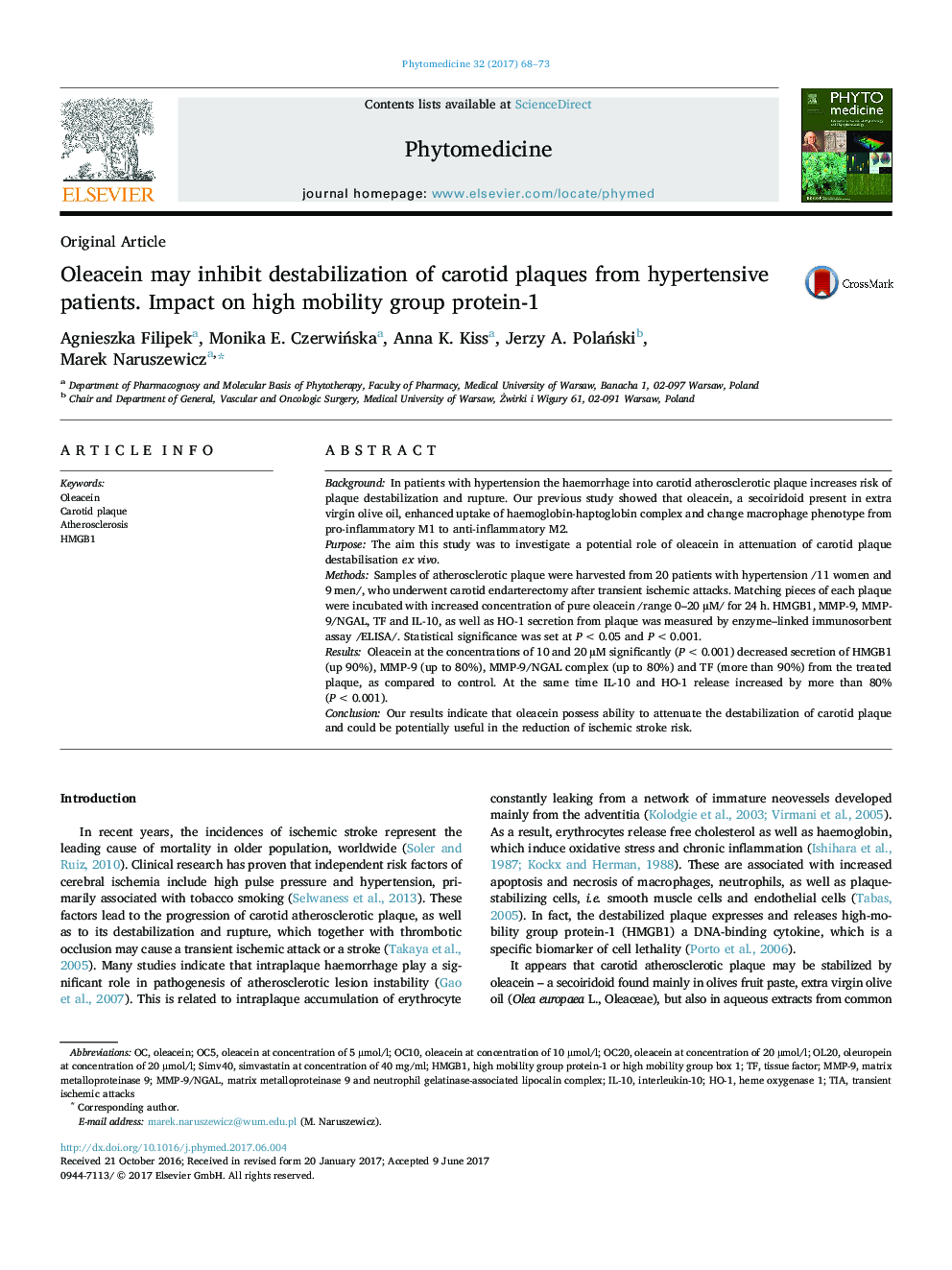| Article ID | Journal | Published Year | Pages | File Type |
|---|---|---|---|---|
| 5549291 | Phytomedicine | 2017 | 6 Pages |
BackgroundIn patients with hypertension the haemorrhage into carotid atherosclerotic plaque increases risk of plaque destabilization and rupture. Our previous study showed that oleacein, a secoiridoid present in extra virgin olive oil, enhanced uptake of haemoglobin-haptoglobin complex and change macrophage phenotype from pro-inflammatory M1 to anti-inflammatory M2.PurposeThe aim this study was to investigate a potential role of oleacein in attenuation of carotid plaque destabilisation ex vivo.MethodsSamples of atherosclerotic plaque were harvested from 20 patients with hypertension /11 women and 9 men/, who underwent carotid endarterectomy after transient ischemic attacks. Matching pieces of each plaque were incubated with increased concentration of pure oleacein /range 0-20 µM/ for 24 h. HMGB1, MMP-9, MMP-9/NGAL, TF and IL-10, as well as HO-1 secretion from plaque was measured by enzyme-linked immunosorbent assay /ELISA/. Statistical significance was set at Pâ<â0.05 and Pâ<â0.001.ResultsOleacein at the concentrations of 10 and 20 µM significantly (Pâ<â0.001) decreased secretion of HMGB1 (up 90%), MMP-9 (up to 80%), MMP-9/NGAL complex (up to 80%) and TF (more than 90%) from the treated plaque, as compared to control. At the same time IL-10 and HO-1 release increased by more than 80% (Pâ<â0.001).ConclusionOur results indicate that oleacein possess ability to attenuate the destabilization of carotid plaque and could be potentially useful in the reduction of ischemic stroke risk.
Graphical abstractDownload high-res image (48KB)Download full-size image
